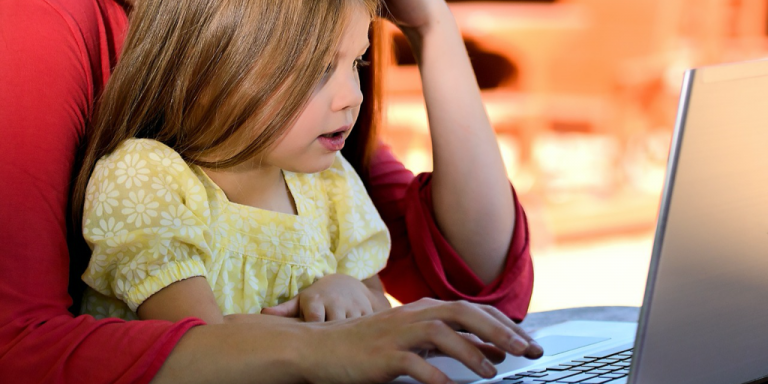The mental health toll of combining paid work and childcare during lockdown
8 October 2020
Research from Baowen Xue and Anne McMunn shows that women spent considerably more time than men undertaking housework and childcare during lockdown and that working parents' mental health has been negatively affected, especially that of lone mothers.

Women spent considerably more time than men undertaking housework and childcare during lockdown, according to research from ICLS' Baowen Xue and Anne McMunn.
The research, which uses Understanding Society data collected during the early months of lockdown, confirms that women spent much more time on housework and childcare than men. Mental health was worse for the man/woman in a couple where he/she was the only one to adapt or reduce work hours for childcare.
For single mothers, having to change work patterns to juggle their job responsibilities with childcare and homeschooling, things were even tougher. They exhibited considerably more symptoms of poor mental health and this finding stayed strong even when we accounted for their mental health pre-lockdown.
During April and May, a number of participants from the 40,000 household study Understanding Society took part in a special ongoing COVID19 study. As part of that they were asked a range of questions about how much time they spent each week doing housework and childcare/homeschooling. They were also asked whether they had had to adapt working patterns or reduce working hours due to childcare/homeschooling. On top of this they were asked a range of questions to gauge the state of their mental health.
On average, the women in the study spent about 15 hours per week in April and May doing housework compared with men who spent 10 hours. When it came to caring for the children and doing homeschooling, women spent nearly twice as much time on this as men - 20.5 hours per week in April increasing to 22.5 hours in May. For men the figure was 12 hours per week for each month.
Only 12 percent of working fathers reduced work hours due to caring responsibilities compared with 17 percent of working mothers.
Between couples, women undertook 64 percent of housework and 63 percent of childcare. Where parents were in a couple they tended not to reduce their working hours, although where this did occur it was more likely to be the woman than the man who made the adjustment (21 percent compared with 11 percent).
Commenting on the findings, published as a PrePrint in SocArXiv, Dr Xue said:
"Although this research is still under peer-review, we don’t anticipate the essential figures changing. The essential message from this research about how badly lockdown is affecting working parents, particularly single mothers, will also stay the same. Looking after children all day who would ordinarily be at school, with the additional responsibilities of homeschooling and extra cooking, cleaning and juggling the demands of a job in circumstances that are challenging have, for many, likely led to sleepless nights, lack of exercise, loneliness and feelings of being overwhelmed. It will undoubtedly have put a strain on relationships between couples and within families."
Professor McMunn said:
"With children back at school, the load will have eased for some, but the stresses and worries of lockdown are by no means over. There are numerous reports of schools sending home whole classes of children to quarantine because of concerns over COVID cases among teachers and pupils alike. As we write this, cases of COVID19 are rising at an alarming rate, the Government has announced further tightening of restrictions and the coming Autumn and Winter months look challenging for everyone."
Earlier research from Professor McMunn and colleagues showed that even before the pandemic, very little progress was being made towards a fairer division of housework and childcare and that women were still doing the lion’s share of cleaning, cooking and caring for the kids. She added:
"At a global level, there is concern that progress towards a more gender equal world is being hampered by our response to the pandemic. Governments everywhere must work to ensure we don’t derail hard fought for improvements, such as gender pay gap reporting, and that lone mothers, yet again, are suffering most. Action is needed now to support working parents and keep the gender equality train moving forward."
Gender differences in the impact of unpaid care work on psychological distress during the Covid- 19 lockdown in the UK is a Pre-Print in SOCARXIV by Dr Baowen Xue and Professor Anne McMunn from the ESRC International Lifecourse Centre in the Department of Epidemiology and Health at UCL.
 Close
Close

